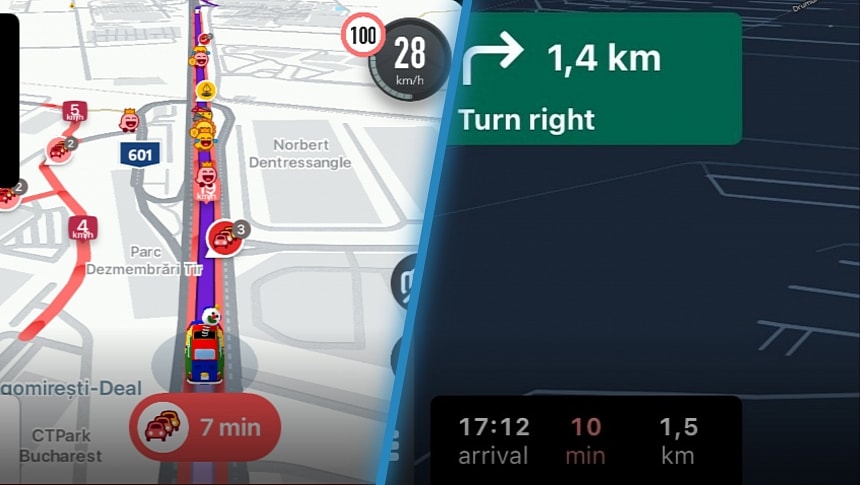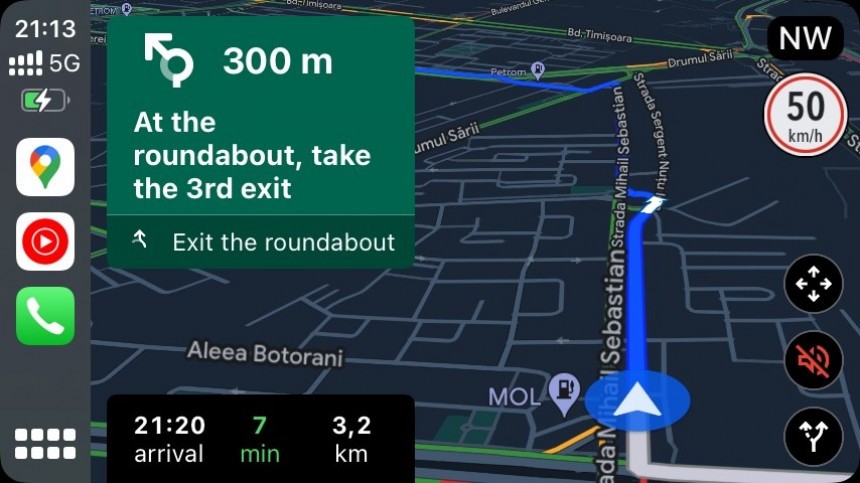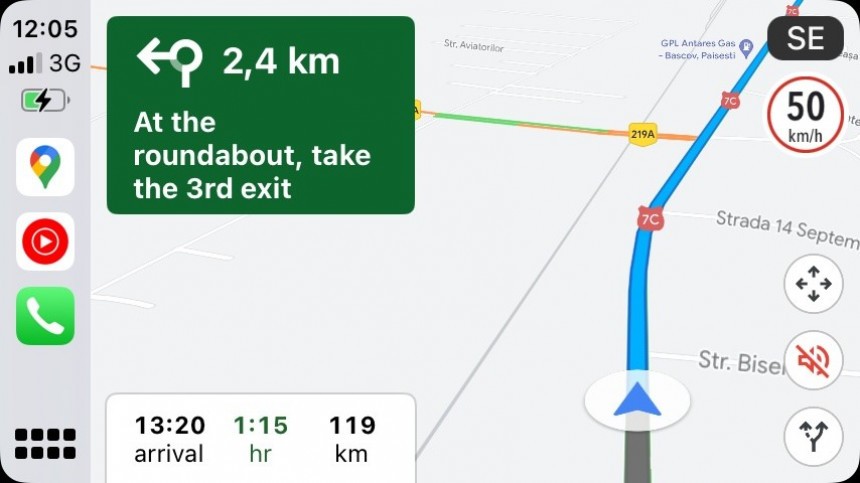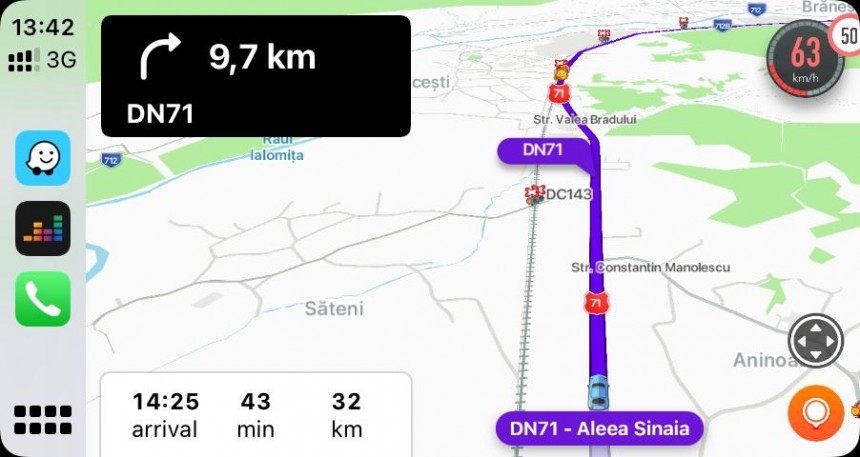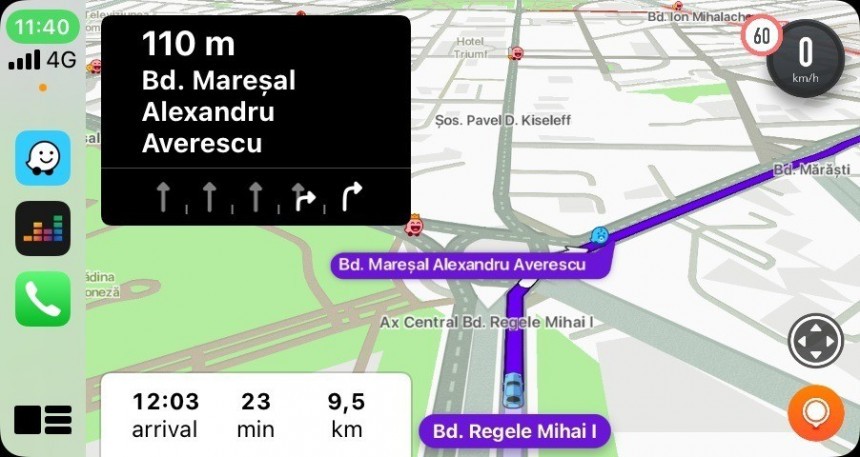Google Maps and Waze dominate the navigation world on most platforms. They are the top choices on Android but also serve as top alternatives in the Apple ecosystem, despite iPhones coming with Apple Maps pre-loaded.
While Apple is working around the clock on making Apple Maps a more advanced product – and eventually a better competitor to Google Maps and Waze, these two applications are already installed on millions of iPhones.
Google Maps and Waze are both Google-owned products. Google developed Google Maps from scratch, while Waze joined its portfolio more than a decade ago when the search giant took over the company for $1.3 billion.
They look similar, but they have different purposes and unique features, setting them apart from the rest of the crowd.
On the one hand, Google Maps embraced a more ambitious approach approximately five years ago when Google decided to transform it into an all-in-one mapping service. Google Maps was born as a navigation app, but this new-generation focus propelled it to a more aspiring future also including non-navigation capabilities.
This is how Google Maps is now the most advanced tool for exploring the world with street-level imagery, business information, reviews, and even data on how crowded a specific region is. It still excels in navigation, as Google Maps offers turn-by-turn guidance, accurate traffic data, and innovative capabilities like eco-friendly routes.
Waze has a different focus. Unlike Google Maps, Waze is focused exclusively on navigation. Its purpose didn't change over the years, so the original concept based on crowdsourcing only evolved to become more accurate and efficient. The application allows users to contribute to traffic data with reports for hazards like potholes, speed traps, traffic jams, and broken traffic lights. The Google-owned company (still operating independently, despite Google merging the teams not long ago) uses the information received from users to generate reports for other drivers.
Waze also requires an Internet connection, whereas Google Maps can work offline if users download the maps before they start driving.
Rumors of a potential merger have been around for years. Some Google decisions, such as bringing the Google Maps and Waze teams under the same roof, fueled the speculation, and people close to the matter said that combining Google Maps and Waze was only a matter of time.
Last year, I wrote a story about this potential merger and told you that Google had no intention to merge Google Maps and Waze into a single navigation app. There were many reasons why the company preferred to keep them on the market as separate apps, including the different purposes and potential antitrust concerns, but my sources at the company told me that combining the two was "definitely" not on the table.
Waze already feeds some traffic data into Google Maps, and the "collaboration" between the two could expand in the coming years, but I'm being told that Google's strategy hasn't changed. Google still believes that Google Maps and Waze should be separate offerings.
Many readers told me that Google has already ruined Waze, paving the way for a complete migration to Google Maps. Others believe the merger is unavoidable, especially as competition is getting fiercer – look at Apple's efforts in this space, with Apple Maps getting lots of new features and first-party apps.
This is why I decided to ask you, the user running Google Maps and Waze, if you still believe that Google wants to merge the two apps. Scroll down to the comment section below, or stay with me for a few more paragraphs to read my opinions.
While my sources at Google told me the Mountain View-based company still has no intention to merge the two, I believe such a plan doesn't make sense, considering the effort Google and Waze put into improving their apps separately.
Google Maps keeps evolving in the all-in-one direction, while Waze is getting better in the space it already dominates. The latest updates are living proof that the two companies continue to focus on and refine a strategy that already works despite living under the same umbrella. Google Maps expands with innovative capabilities, such as Immersive View, while Waze receives support for new traffic reports (sharp curves, speed bumps, and toll booths) and improved navigation (for roundabouts).
Eventually, merging Google Maps and Waze wouldn't help anyone. Google would only create a complex application that could become too difficult to use, while rivals could complain of competition problems stemming from combining the world's top navigation solutions. Google already faces similar antitrust complaints over other products, and the company certainly doesn't want to deal with more legal problems (especially in Europe, where the EU seems increasingly unwilling to accept the domination of tech giants).
What do you think? Does a potential merger between Google Maps and Waze still make sense in 2024, especially after the latest updates that improved the two apps significantly? Use the comment box after the jump to share your opinion.
Google Maps and Waze are both Google-owned products. Google developed Google Maps from scratch, while Waze joined its portfolio more than a decade ago when the search giant took over the company for $1.3 billion.
They look similar, but they have different purposes and unique features, setting them apart from the rest of the crowd.
This is how Google Maps is now the most advanced tool for exploring the world with street-level imagery, business information, reviews, and even data on how crowded a specific region is. It still excels in navigation, as Google Maps offers turn-by-turn guidance, accurate traffic data, and innovative capabilities like eco-friendly routes.
Waze has a different focus. Unlike Google Maps, Waze is focused exclusively on navigation. Its purpose didn't change over the years, so the original concept based on crowdsourcing only evolved to become more accurate and efficient. The application allows users to contribute to traffic data with reports for hazards like potholes, speed traps, traffic jams, and broken traffic lights. The Google-owned company (still operating independently, despite Google merging the teams not long ago) uses the information received from users to generate reports for other drivers.
Rumors of a potential merger have been around for years. Some Google decisions, such as bringing the Google Maps and Waze teams under the same roof, fueled the speculation, and people close to the matter said that combining Google Maps and Waze was only a matter of time.
Last year, I wrote a story about this potential merger and told you that Google had no intention to merge Google Maps and Waze into a single navigation app. There were many reasons why the company preferred to keep them on the market as separate apps, including the different purposes and potential antitrust concerns, but my sources at the company told me that combining the two was "definitely" not on the table.
Waze already feeds some traffic data into Google Maps, and the "collaboration" between the two could expand in the coming years, but I'm being told that Google's strategy hasn't changed. Google still believes that Google Maps and Waze should be separate offerings.
This is why I decided to ask you, the user running Google Maps and Waze, if you still believe that Google wants to merge the two apps. Scroll down to the comment section below, or stay with me for a few more paragraphs to read my opinions.
While my sources at Google told me the Mountain View-based company still has no intention to merge the two, I believe such a plan doesn't make sense, considering the effort Google and Waze put into improving their apps separately.
Google Maps keeps evolving in the all-in-one direction, while Waze is getting better in the space it already dominates. The latest updates are living proof that the two companies continue to focus on and refine a strategy that already works despite living under the same umbrella. Google Maps expands with innovative capabilities, such as Immersive View, while Waze receives support for new traffic reports (sharp curves, speed bumps, and toll booths) and improved navigation (for roundabouts).
What do you think? Does a potential merger between Google Maps and Waze still make sense in 2024, especially after the latest updates that improved the two apps significantly? Use the comment box after the jump to share your opinion.
